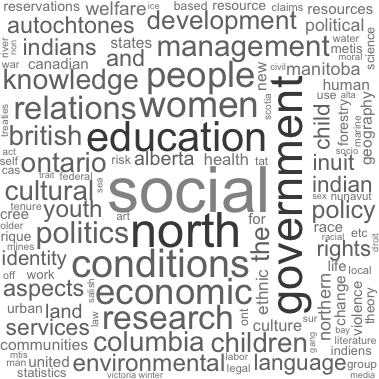Indigenous Futures
Research Sovereignty in a Changing Social Science Landscape
Key messages
Research
People

The issuance of the Truth and Reconciliation Commission (TRC) of Canada report provides an opportunity and clear need to reaffirm the right of Indigenous communities to be equal partners and leaders in research within their communities. Similarly, Indigenous communities have articulated the principles and policies that should guide research within their communities as well as the ways in which social science methods, including statistical approaches, can be harnessed to promote self-determination among Indigenous communities. Meanwhile, social science research is becoming increasingly technical, often using complex research designs and highly technical methodological approaches, including specialized quantitative analyses of experimental and observational data. Institutional, organizational and human resources are required to support Indigenous Peoples in their development of capacity to critique, participate in and lead social science research in their communities. Without these types of resources, Indigenous perspectives are at risk of being ignored or undervalued, particularly in instances of evidence-based policy making.
This research was supported by the Social Sciences and Humanities Research Council of Canada.
